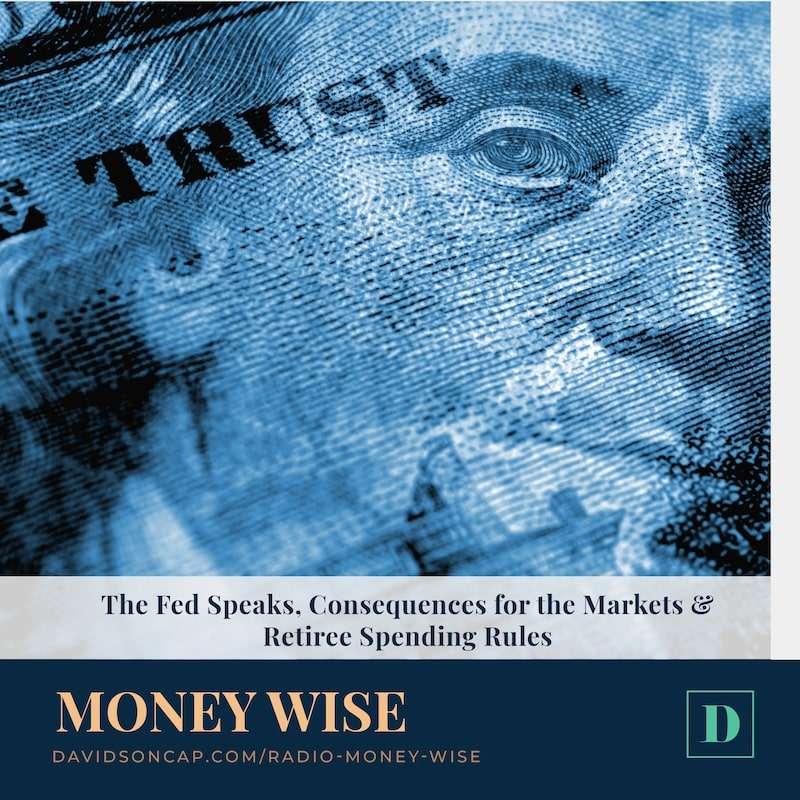A Cash Reserve is Useful but Stashing Money in Your Home is a Bad Idea
Did you grow up with a parent or grandparent with a habit of hiding cash under the mattress or in the freezer? Do you hide an emergency cash reserve somewhere in your house? According to a recent financial wellness survey by Acorns and SurveyMonkey, 68% of people said the current state of the world makes them want to save more, and 20% said they’re inclined to stash cash under the mattress.
Let’s be clear here: Having a little bit of extra cash at home can come in handy, but stashing substantial amounts is NOT a good idea. Let’s dig into why.
Why You Need to Stop Hiding Cash Under Your Mattress
1. It’s Not Working for You
If you’re hiding cash anywhere in your home, you’re not earning any interest or investment growth. Period. If you’re keeping significant amounts of cash on the sidelines instead of in a properly balanced investment portfolio, you are missing out on all the opportunities the markets have to offer when it comes to growing your wealth long-term. What’s more, rising inflation means that your cash reserve will buy you less over time. That’s a major opportunity cost – and one that you probably can’t afford.
2. It’s Not Protected
A cash reserve stashed at home won’t have the same protections you get from a financial institution. For instance, banks and credit unions usually insure deposits. Why is that important? Well, if the bank or credit union gets robbed, you’ll still get your money. If your house gets robbed (or catches on fire or is impacted by a natural disaster), can you say the same? Obviously, you can’t. Even if you have a rider on your homeowner’s insurance to insure your personal belongings, cash coverage is typically limited to just $200. If you’re hiding your cash under the mattress, in the freezer, or anywhere else common, it won’t be hard for someone to find. And if you’re hiding a substantial amount, you’ll be out a substantial amount.
SEE ALSO: Six Benefits of Working with a Registered Investment Advisor
3. You May Become Forgetful
From a completely practical standpoint, how can you be certain you’ll remember where you stashed your cash reserve? The truth is that many people forget after a while and simply lose track of the money they’ve hidden in their homes. In fact, a few years ago, a volunteer at a used book sale discovered $4,000 inside a donated book! Luckily, there was an address inside the cover, so the benevolent volunteer was able to return the money. Think about it, though – this story could have just as easily had a very unhappy ending for the former owner of that book.
Other Key Considerations: “Should I Keep Cash at Home?”
If you’re hiding money in your home, you should ask yourself a few questions to get to the root of why you aren’t utilizing traditional financial institutions and all the benefits they have to offer:
- Are You Uncomfortable Talking About Money?
If you’re choosing not to work with a banker, broker, financial advisor, or other financial professionals, is it because you want to avoid talking about money? People who feel they don’t know enough or who get confused by the terminology often put off conversations with financial professionals. This can be particularly true when it comes to investing because the stock market can be complex and overwhelming to the uninitiated – or to anyone who has been burned by a bad investment in the past. If you’re facing this challenge, focus on educating yourself little by little. (Reading our blog or listening to our podcast are great places to start.)
- Do You Think You’re Too Late?
If you started saving later in life, you might think you’re out of time to cash in on the benefits of compound interest. Sure, it’s best to start saving early so you have more years for your money to grow, but it’s never too late to start benefitting. Keeping your money at home guarantees it won’t grow, but investing it or utilizing a high-yield savings account almost guarantees that it will. So, go ahead and harness the magic of time – even if you don’t think it’s on your side.
SEE ALSO: How to Choose the Best Investment Advisor for You
- Are You Vulnerable to a Scam?
Whether it’s a gold digger situation, a family member who helps themselves to your stash, or a scammer hoping you have easy access to cash, keeping your money in your home makes you an easy target for someone looking to take advantage. This can be especially true as you age, since many scammers target senior citizens. (The National Council on Aging lists the most common scams here.)
Final Thoughts
Keeping a bit of emergency cash in your home can be useful, but hiding large amounts of cash at home – or a significant portion of your savings – is a bad idea. Your money isn’t working for you, you’re missing out on important protections, and you’re running the risk of losing track of what you’ve hidden away.
If you’ve been keeping your money in your home and you’d like to discuss your investment options instead, please give us a call today. At Davidson Capital Management, we provide in-house, fee-only investment management to individuals, families, businesses, and endowments in the state of Texas and beyond. Above all, our team of professionals is dedicated to educating clients and offering transparent, goals-based, hands-on portfolio management. We’ll answer your questions, explain your options, and help you put your money to work for your future.




